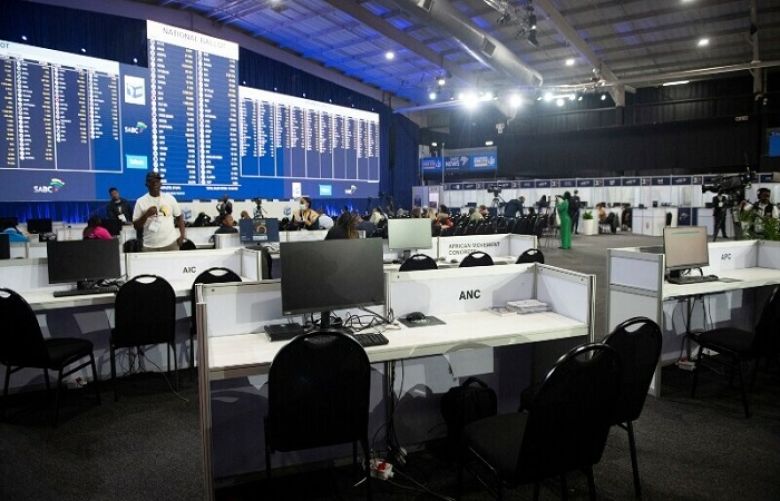The African National Congress appeared poised on Thursday to lose a parliamentary majority it has held for 30 years, partial election results indicated, as South African voters punished the former liberation movement after years of national decline.
While the party of Nelson Mandela looked likely to remain the largest political force, such an outcome would push it into a coalition with other parties, the first time it would share power in the country’s post-apartheid history .
With results in from 29.5 per cent of polling stations, the ANC’s share of the vote in Wednesday’s election stood at 42.5pc. It won 57.5pc of votes in the previous election in 2019.
“The ANC might have to consider forming an alliance with one of its major rivals in order to maintain its hold on power,” said Andrew Bahlmann, a senior executive at mergers and acquisitions advisory firm Deal Leaders International.
Which party it might choose remained unclear. The partial results released by the electoral commission put the pro-business Democratic Alliance (DA) on 25.1pc, and the Marxist Economic Freedom Fighters (EFF) party on 9pc. uMkhonto we Sizwe (MK), a new party led by former president Jacob Zuma, was at 8.6pc and eating into ANC support, particularly in KwaZulu-Natal — Zuma’s home province and a traditional stronghold of the ruling party.
“MK is the reason why the ANC is getting less than 50pc,” Oscar Van Heerden, Senior Research Fellow at the Centre for African Diplomacy and Leadership at the University of Johannesburg, told Reuters. The ANC has won every national election since a landmark 1994 vote ended white minority rule and brought Mandela to power.
But the last decade has seen the ANC wracked by repeated corruption scandals while South Africans have watched the economy stagnate, unemployment and poverty climb and infrastructure crumble, leading to regular power outages.
Pollsters and two of the country’s three main broadcasters predicted that the final results would confirm that the ANC had lost its majority.
Under South Africa’s proportional voting system, parties’ shares of the vote determine the number of seats they get in the National Assembly, which then elects the next president. That could still be the party’s leader and incumbent President Cyril Ramaphosa. However, an embarrassing showing at the polls risks fuelling a leadership challenge.
If current trends continue, the ANC would likely struggle to cobble together a majority through alliances with small parties, raising speculation over which of its big rivals it might tie up with.
“(These results) give the ANC the option of partnering with the market-friendly DA,” said Bahlmann.
Investors and the business community have voiced concern over the prospect of a coalition with the EFF, which is calling for the seizure of white-owned land and the nationalisation of mines and banks, or with Zuma’s MK.







